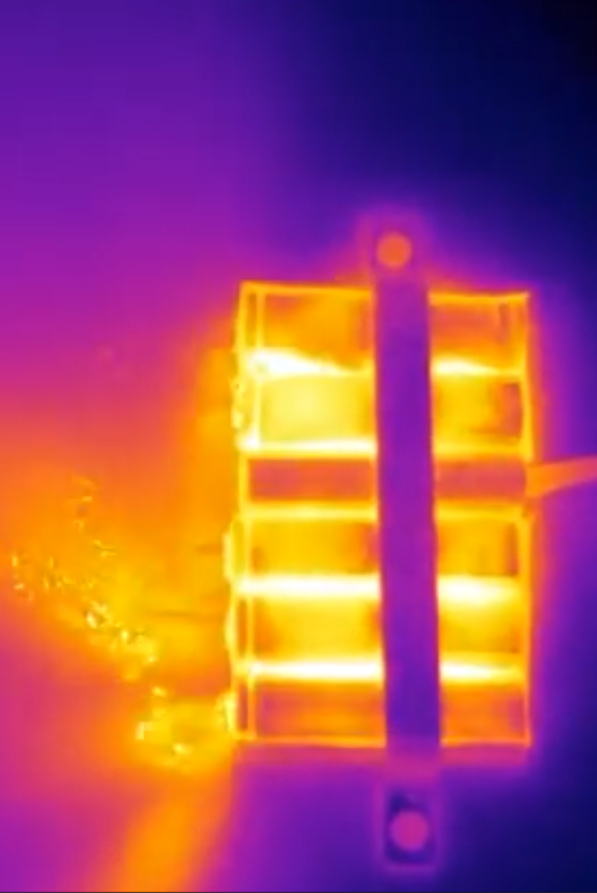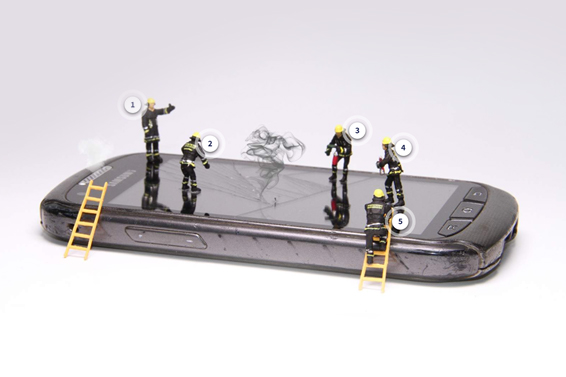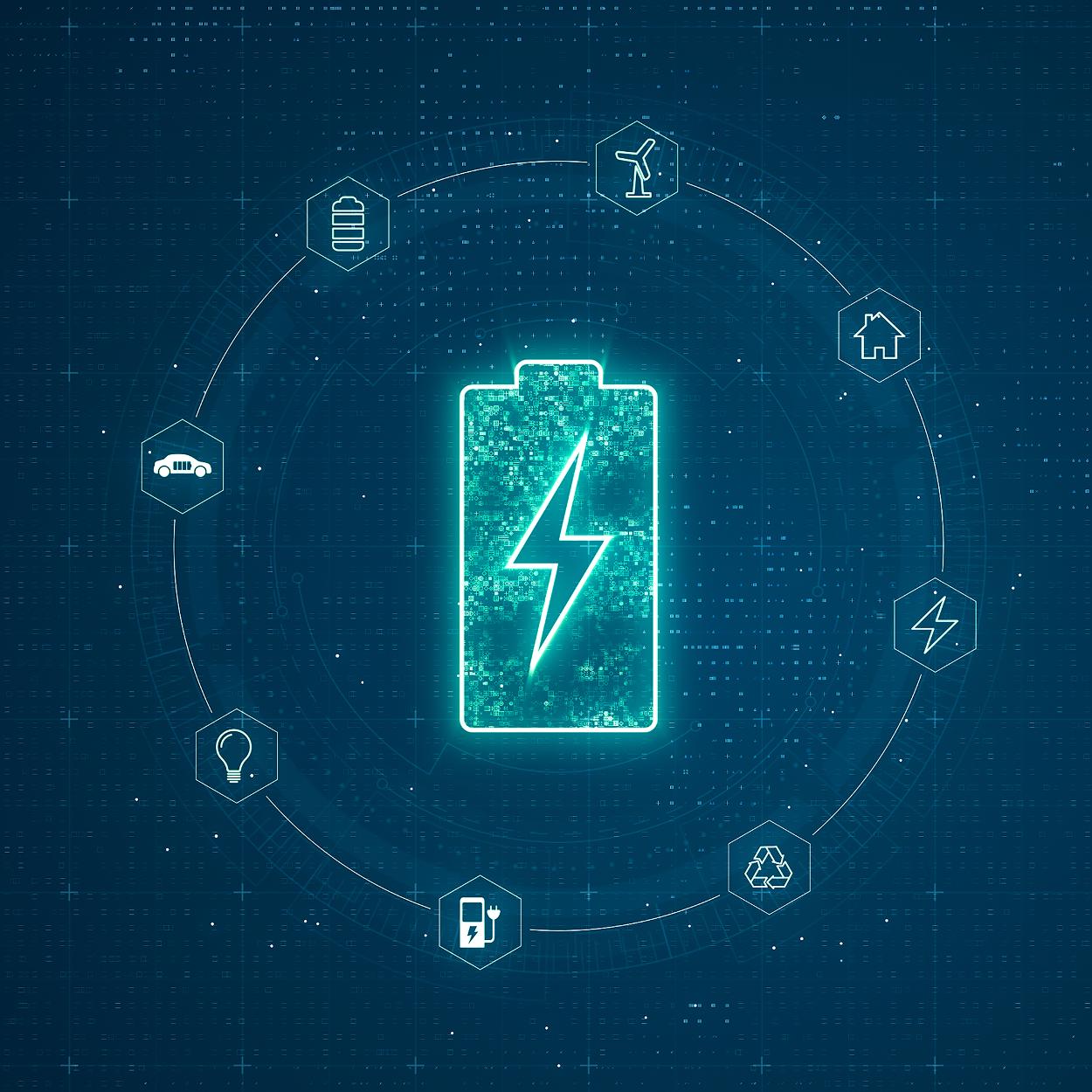Lithium-ion Battery Training
We deliver comprehensive online CPD accredited training enabling people to be aware of the dangers of lithium-ion battery fires and giving them the understanding of how to deal with these types of incidents.

Module 1 – Basic Awareness
Ensures that students will be able to understand the hazards and risks lithium-ion batteries, identify warning signs for lithium-ion battery incidents- especially potential vapour cloud explosion and thermal runaway fires and recall initial action if you are the first person on scene at a potential gas venting or fire.

Module 2 – Dealing With An Incident
Ensures the students understand the hazards and risks lithium-ion battery fires pose; understand how you can potentially prevent and/or spot an LIB overheating; the initial actions you must take if you are the first trained person on scene; various techniques you can use to fight a lithium-ion battery fire and what to expect if the fire is out, but the battery is in thermal runaway; understand the structure of operational response (bronze) and tactical response (silver); and ways in which you can prevent a lithium-ion battery fire from occurring, looking at best practice.

Module 3 - The Strategic Management of Lithium-ion Battery Incidents
Aims to build on the learning from our level 1 and 2 courses, which considered the hazards and how to deal with lithium-ion battery incidents. The assumption is that anyone undertaking this course has completed at least one of these previous courses and has a working knowledge of the risks.
The learning aims of this course focus on how a student would assess and deal with a significant lithium-ion battery fire in their business or organisation. It stresses the importance of developing proper procedures for dealing with the dangers and challenges their staff could potentially face. The course focuses on three areas of priority: early Information and detection (EI), early Intervention (EI) and Operational Handover to emergency services (OH).
The little-known risks posed by Lithium-ion Batteries
There are millions of lithium-ion batteries in electronic gadgets up and down the country. However, despite an increase in social media and mainstream media reporting incidents involving lithium-ion batteries, surprisingly few people are aware that these batteries are a potential fire risk. For this reason, we wish to promote lithium-ion battery awareness in the UK.


Why are lithium-ion battery fires a problem?
Lithium-ion batteries (LIBs) are widely used in portable electronics and electric vehicles (EVs), and they are now a part of everyday life. Lithium-ion batteries offer a number of advantages, but if damaged, mishandled or poorly manufactured, they can suffer stability issues and be subject to what is called a ‘thermal runaway'.
Thermal runaway is a chain reaction within a battery cell that can be very difficult if not impossible to stop once it has started. It occurs when the temperature inside a battery reaches a point that causes a chemical reaction to occur inside the battery. This chemical reaction produces even more heat, which drives the temperature higher, causing further chemical reactions that create more heat. In thermal runaway, the battery cell temperature rises incredibly fast, often within seconds and the energy stored in that battery is released very suddenly and violently.
This chain reaction creates extremely high temperatures and if the right conditions exist significant explosions. In addition to the super high temperatures generated by a Thermal Runaway incident, the “smoke” emanating from a lithium-ion battery fire is actually a vapour cloud containing a cocktail of highly toxic gases such as hydrogen, carbon monoxide, hydrogen cyanide, hydrogen fluoride, and hydrogen chloride.
This cloud is lethal to an unprotected person. The thermal runaway phenomenon is well recognised, and it can be mitigated against providing awareness and prevention actions are taken. The aim of training is to raise awareness of the hazards of lithium-ion battery systems, and to assist and support employees and employees to work safely around LIB battery systems and to educate people of the risks within their own homes.
What is being done in the industry to combat these types of fire events?
Considerable research is being undertaken to determine why thermal runaway occurs and how it can be prevented. LIB manufacturers are also looking to build detection and extinguishing capacity into LIBs, but all this will take time and considerable cost.
This is why as Fire Safety specialist we feel training is essential in the interim period.

 ?
?

Our lithium-ion battery safety training CPD courses are accredited.
JGS Fire Safety Ltd has been working with the world's leading scientists, fire experts and energy engineers to develop our series of online Lithium-ion Battery Safety courses for personnel who handle, store, transport or work in the vicinity of lithium-ion batteries and those who may have to extinguish the fires or deal with an incident.
In addition, with more people working from home the potential risk for incidents within the home is increasing and these types of incidents are routinely being reported in the media around the world.
The courses are the only ones approved by the Institute of Fire Safety Managers (IFSM) and have CPD accreditation. They are also accredited with the Nautical Institute for the maritime environment.
Why were the online courses developed?
We work with companies who provide risk assessment and risk mitigation in high-threat environments and LIBs were being recorded as having started fires, or gassed off, in these environments. Very few people were aware of the thermal runaway phenomenon at the time, so we set about finding out about the associated risks because many of our clients were using LIBs.
In doing so we realised that an LIB incident is particularly hard to deal with and that many Fire Services had not, at the time, set up any Standard Operating Procedures to deal with them.
Currently there are no ISOs for dealing with lithium-ion battery incidents and most British Standard/EU Standards, or sector specific guidance, deals only with the construction of batteries. We also realised no awareness courses existed. Thus, we identified the problem and we then identified practical operational solutions and training to mitigate the risks to our clients.


Who are the courses for?
The lithium-ion battery awareness courses are for people who handle, store, transport or work with lithium-ion battery powered devices such as laptops, mobile phones, tablets, tools, appliances or energy storage equipment and electric vehicles. This could be in their workplace, in their homes, travelling or during leisure time.
Currently people that are doing our courses come from the maritime Industry, waste services, e-bike providers, fire safety managers, H&S Inspectors, mining, transport providers, cadet corps, school children and local authority Fire & Rescue Services.
We offer greatly reduced course rates for the Emergency Services as a way of giving back to the people who gave me my opportunity in fire safety and who continue to do such great work for us all.
Why should people undertake the training?
At this time LIB fires are extremely difficult to extinguish safely and the gasses that are given off are extremely poisonous. The fire is intense and at times explosive. Fire spread is rapid, and containment is challenging.
For these reasons JGS Fire Safety Ltd provide the courses that will help reduce the risk to the workplace, the home, and anyone who may have to deal with an incident. Why wouldn't you want to undertake this training? We all have a duty of care, both to ourselves and to others.

Contact Our Team
Contact our team to arrange fire risk assessment, training or consultancy services today: Call 01268 858231 or email info@jgsfiresafety.co.uk
